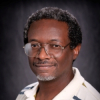Eugene Kennedy

Eugene Kennedy
Eugene Cullen Kennedywas an American psychologist, syndicated columnist, and a professor emeritus of Loyola University Chicago. He remained a professor of psychology at the university for several years. A laicized Catholic priest and a long-time observer of the Roman Catholic Church he wrote over fifty books on psychology, religion, the Catholic Church, and THE psychology of religion, and also published three novels, Father's Day, Queen Bee, and Fixes. He wrote a column for the Religious News Service, distributed by the...
NationalityAmerican
ProfessionPsychologist
Date of Birth18 August 1928
CountryUnited States of America
Vatican II and the Space/Information Age began in the same eye blink of history, with John XXIII's opening speech of Vatican II on Oct. 11, 1962, following John F. Kennedy's call for a round trip to the moon a month earlier.
Pope Francis reminds us of Pope John XXIII because both men share the same lack of self-consciousness, and neither needs to keep his guard up through the use of psychological defenses such as rationalization, projection or intellectualization.
Benedict's spending down his energy was a function of his fighting against the Space/Information Age's relentless pressure on the concept of hierarchy, the restoration of which he had, following John Paul II, made a central part of the program that has come to be known as the reform of the reform.
The whole world feels that it knows Francis, not so much because he follows Francis of Assisi but because he is always himself. We have seen him pay his own hotel bill and heard that Francis called Buenos Aires for a pair of ordinary black shoes, like John XXIII, who preferred stout peasant shoes to the traditional papal footwear.
St. Pope John XXIII called for the Second Vatican Council because he understood, as no Holy Father had in a long time, religion spoke to and found its language and symbols - its entire sense of the sacramental nature of existence - in the imagination that reveals not just the penalties of living, but the wonder and awe of our existence.
Pope Francis has aimed a blow at what the whole hierarchical system is built on: a graded system with the higher clergy in the skyboxes, the devoted religious in festival seating, as they say of the crowds at rock concerts, and, on the bottom, the laity in standing room only.
Pope Benedict XVI's resignation is big on buzz but is not the stunning surprise claimed by many pundits. It is rather a further example of the German theology professor's style that informed his years as head of the Congregation for the Doctrine of the Faith, his term as pope, and the formation of his legacy to the church.
The priesthood is not dying, but the clerical state is dead. It needs to be buried, preferably with a Viking funeral in Boston Harbor so nobody can miss the spectacle of its passing.
Our human experience, like the World War II Ultra code-breaking machine, catches the heavy traffic of messages about what we really do and what is done to us every day.
The perception of the horizon is an earthbound event; all horizons disappear in space, and we are left shorn of the sweet roots that have held us to the earth, challenged to imagine what is truly present just before us, a unified and seemingly limitless universe.
Wherever you find 'men together' - writing the rules, as at exclusive golf or other men's clubs, businesses, and lodges where they wear elaborate robes and funny hats - women are kept completely outside if possible and, when grudgingly admitted, to highly restricted areas or token status.
Most ecclesiastical relics are fixed in time at the moment of their manufacture. That is why they are offered for veneration in casings that resemble pocket watches. They have lost their claim to mystery because they are so clearly the products of time.
Human experience resembles the battered moon that tracks us in cycles of light and darkness, of life and death, now seeking out and now stealing away from the sun that gives it light and symbolizes eternity.
Hierarchical formulations died because their wedding cake levels posited a multiply fractured cosmos that does not match the Space Age revelation of a unified universe in which the earth is clearly in, rather than separated from, the heavens. Hierarchical representations do not reflect what either the world or we are like.